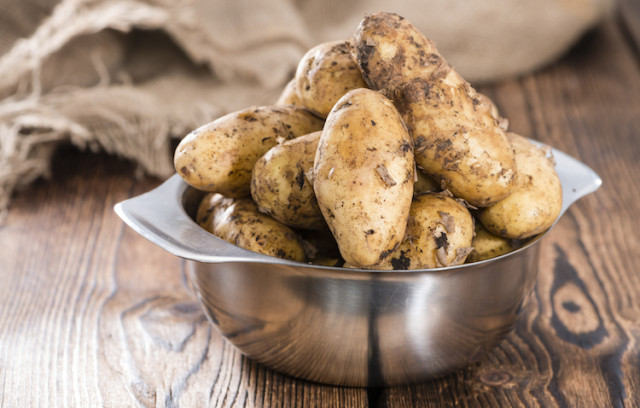
This post comes courtesy of Danielle Nierenberg of Food Tank: The Food Think Tank
Organic and agroecological farming methods typically build healthier soils, produce less pollution, and protect ecosystems better than conventional cultivation methods. However, scientists have only recently discovered that organic products are also better for eaters.
A new study by Newcastle University on organic versus conventional crops confirms that organic farming methods do have a positive impact on health. Results found substantially higher levels of antioxidants and lower levels of pesticides in organic crops versus conventional crops. Antioxidants have been linked to a lower risk of cancer and other diseases in humans. Plants naturally produce antioxidants to defend themselves against pests and diseases. But when pesticides are applied, plants lose the need to generate antioxidants for their own defenses.
Dr. Charles Benbrook, professor at Washington State University’s Center for Sustaining Agriculture and Natural Resources and co-author of the study, says, “Our results are highly relevant and significant and will help both scientists and consumers sort through the often conflicting information currently available on the nutrient density of organic and conventional plant-based foods.”
The findings contradict a 2009 U.K. Food Standards Agency funded study that found no significant differences in nutritional benefits between organic and conventional crops. However, the authors commented that newly available data and better analysis methods make the recent study’s findings more definitive.
“It shows very clearly how you grow your food has an impact, and that if you buy organic fruits and vegetables, you can be sure you have, on average, a higher amount of antioxidants at the same calorie level,” says Carlos Leifert, Professor of Ecological Agriculture at Newcastle University and lead author of the Newcastle study.
Benbrook and his colleagues analyzed 343 studies, which is the most extensive analysis of nutrient content in organic versus conventional food to date. Significant findings from the study include:
- Organic crops contain an average of 17 percent more antioxidants than conventionally grown crops.
- Some of the organic crops, including fruits, vegetables, and grains, had as much as 60 percent higher concentrations of antioxidant compounds than conventional crops.
- The level of flavanones, which are associated with a lower risk of stroke, were 69 percent higher in organic foods tested.
- Pesticide residues were found to be three to four times more likely in conventional crops compared to organic.
- Overall levels of pesticides were found to be ten to 100 times lower in organic food than in conventionally produced food.
The research team has translated the executive summary and press release into more than 20 languages and made the study’s database free and accessible to the public. The entire study is available from the British Journal of Nutrition.
“This study is telling a powerful story of how organic plant-based foods are nutritionally superior and deliver bona fide health benefits,” said Dr. Benbrook.
On Wednesday, September 10, Food Tank will host the sixth webinar in its Exclusive Webinar Series, entitled “Organic Farming’s Impact on Health.” The webinar will feature Dr. Benbrook, who will discuss the results and findings of this study in more detail, and take time to answer questions from participants. It will take place from 1pm to 2pm EST. Registration is required! Please register today.
Why do you care about eating organic foods? Please email me at [email protected].
ABOUT FOOD TANK
Food Tank: The Food Think Tank, founded by Danielle Nierenberg and Ellen Gustafson, is a think tank focused on feeding the world better. We research and highlight environmentally, socially, and economically sustainable ways of alleviating hunger, obesity and poverty and create networks of people, organizations, and content to push for food system change.
Photo of potatoes via Shutterstock


